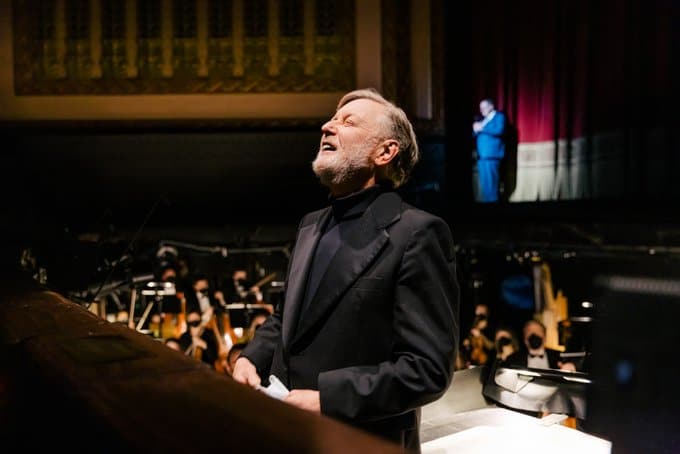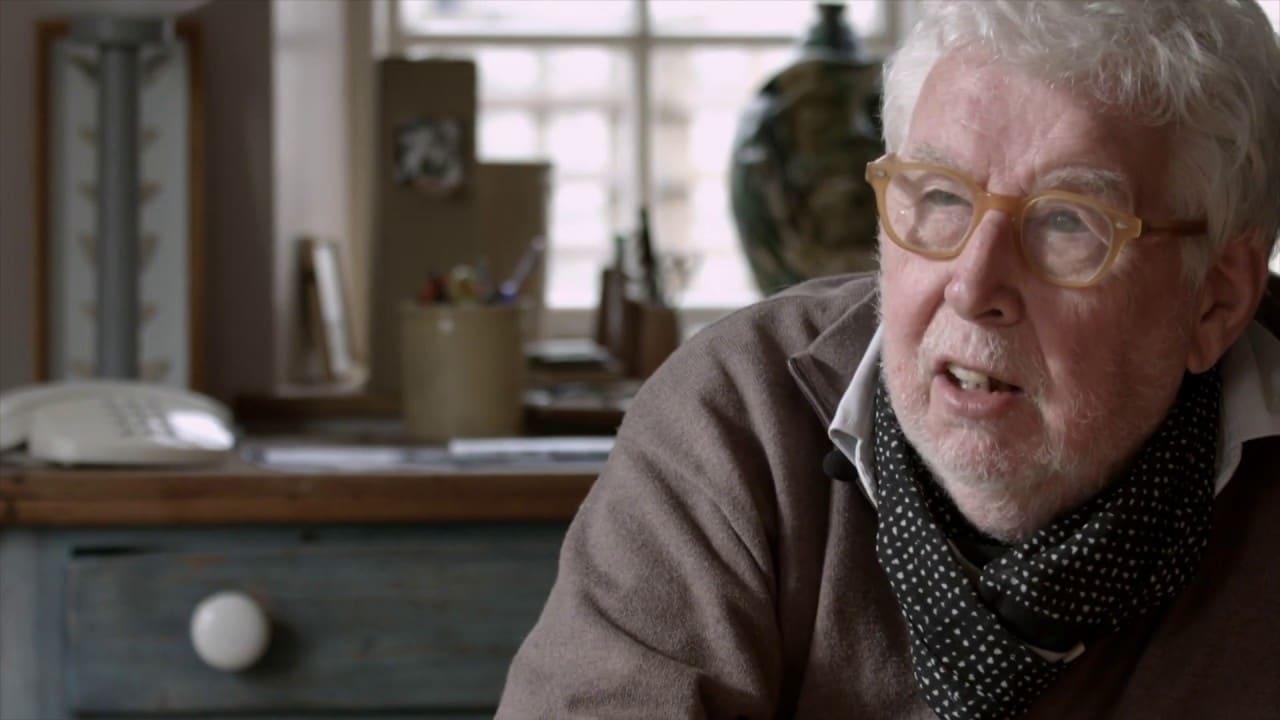Mahler remembered today
OrchestrasGustav Mahler died in a Vienna sanatorium on May 18, 1911.

Gustav Mahler died in a Vienna sanatorium on May 18, 1911.
Decca is marking the birth centenary of John…

Statement by the Berlin Phil: It is with…

Andrew had a second coming on record when…

The Last Night that was picketed because Sir…

Session expired
Please log in again. The login page will open in a new tab. After logging in you can close it and return to this page.
Impossible today to don’t think about Bernard Haitink
IMO Mahler’s works do not lend themselves to cycles by a single conductor and orchestra. For instance in considering the stereotype that Bernstein was largely responsible for popularizing Mahler I find performances that are close to seminal, the 2nd with TCO, and others that I find unlistenable, the 4th with the NYPO or RCO. That said, Mr. Haitink was clearly a lifelong advocate.
I wrote that because Haitink left us 6 months ago. The first who did something very important for Mahler was Mengelberg even if I know his story was not glourious… It’s a fact and there’s with the RCO a link with Mahler music we don’t have with the other orchestras. But of course there are no exclusivity for this orchestra to play Mahler. I think about the importance of Bayerischen Rundfunk with Kubelik also for exemple.
The Haitink recording of Das Lied is one of the few on which the Mandolin can be heard.
You can hear it on the Klemperer studio recording too.
Shouldn’t Bruno Walter be mentioned also as doing “something very important” for Mahler?
I’d also point out that the very nature of the recording medium — 4 minute 30 second 78 rpm discs — made being a Mahler champion a very different thing in the era of Mengelberg and for most of Bruno Walter’s career, except for the very last years. Not just the practical issues of recording the music in small chunks, but the expensive nature of recordings of long works. Our old Fritz Kreisler 78s of the Beethoven Concerto had the original price written on the first paper sleeve, maybe $10 or $12, and my dad pointed out that when his own father bought that recording circa 1927, it represented several day’s wages for many, and close to a week’s wages for some. He marveled at the fact that in the 1960s the local pharmacy (!) sold LPs and he could and did buy Oistrakh playing the Beethoven Concerto for a buck or two (on Vox).
I have at least a portion of my grandparent’s library of music books. So let’s go looking for Mahler in the years up to and including WWII.
Paul Grabbe’s “The Story of One Hundred Symphonic Favorites” (Grossett & Dunlap 1940). Nothing of Mahler, not even a mention (nor of Bruckner). But Borodin’s Symphony No 2, Deems Taylor’s “Through the Looking Glass,” and Ernest Schelling’s “A Victory Ball” are described, at some length. Favorites, eh?
Elie Siegmeister’s “The Music Lover’s Handbook” (Wm Morrow & Co. 1943). A discussion (with no particular insight) of Mahler’s Symphony No. 1 by Pitts Sanborn. That’s better, but still meager: three Shostakovich symphonies (1, 5 and 7) are covered. An essay by Hugo Leictentritt on the Romantic era lists Mahler as a conductor – and again briefly in a list of Jewish musicians and composers (his point being to contrast the era’s increase in cosmopolitan tolerance and liberalism with its narrow, intolerant and extreme nationalism, that is, Wagner).
“The Standard Opera and Concert Guide” by George P Upton and Felix Borowski [Borowski was the program book annotator for the Chicago Symphony] (Halcyon House 1930 edition). Discussion and analysis of Mahler’s first, fourth and eighth (“this so-called symphony”) symphonies. That’s pretty good until you realize that the Mahler discussion is dwarfed by that for Frederick Stock (yes, the music director of the Chicago Symphony; Borowski knew what side of his bread the butter was on), Liadov, or Schuman — GEORG Schumann! (Interesting, but off topic – it appears my father must have clipped a long Milwaukee Journal article about the publication of Arnold Schoenberg’s letters and inserted it into this large book. He never mentioned a particular interest in Schoenberg.)
“The Concert Companion” by Robert Bagar and Louis Biancolli (McGraw – Hill 1947, so after my grandfather’s death). This is a compendium of New York Philharmonic program book notes from 1940 to 1947. The symphonies 1, 2, 4, 5, 9, and “Das Lied von der Erde” are discussed, knowingly, with many quotes by Bruno Walter about his conversations with Mahler.
All in all pretty slim pickings for a would be Mahler listener. The LP record era changed everything.
What an extraordinary interesting read. I wonder if there were equivalent books from Europe and what they would’ve said. I do hope you can find a way keeping your grandparents library together going forward into the future.
Bruno Walter certainly earned his niche as a Mahler champion, but the Mengelberg invited Mahler to the Concertgebouw to conduct his first, third, fourth, fifth and seventh symphonies (in addition to Das Klagende Lied and Kindertotenlieder).
Also, in 1920, Mengelberg conducted all of Mahler’s works in a festival with the Concertgebouw and of course programmed them throughout the rest of his career. His recording of the 4th symphony is a historic milestone as is Walter’s 9th, both recorded in the 1930s.
Mengelberg’s advocacy predates Bernstein and all the others.
Yet another early advocate of Mahler’s music who seldom ever gets mention is Ernst von Schuch. He was the main maestro in Dresden, but died just months before the start of WWI. As well conducting a ton of opera (including those of Richard Strauss), he also conducted a fair amount of both Bruckner and Mahler.
As I see it Mahler transmitted his music interpretation to his assistant at Vienna, Bruno (Schlesinger) Walter; who submitted it to his assistant at NY Phil, Leonard Bernstein; who submitted it to his assistant, MTT.
There was another ‘handing over’ route from Mahler to Mengelberg and the RCO.
Bernstein ‘revived’ Mahler’s music after it lay ‘dormant’ due to its classification as degenerate by the Nazi regime. He deserves full credit for that.
Mahlers music has been a constant companion, a font of beauty and a source of consolation for over 40 years. I am looking forward to fulfilling a lifelong ambition when I attend the Mahler festival in Leipzig next year.
I am a Mahler fanatic and proud to be so. I had a Mahler-themed tattoo for my 60th Birthday last year and I play his music every day.
What would Mahler say of tattoos?
Paul – have you heard our Mahler 8 at http://www.choiroftheearth.com then GREATEST HITS. All instrumentalists and choir recorded separately at home.
It’s sad but also amazing to realize that his mighty 8th symphony was premiered barely six months previously, and that Mahler never heard a single note performed of “Das Lied von der Erde”, Symphony #9, nor the completed Adagio to his 10th Symphony.
Listening to the fifth this very moment, thanks to random album shuffle on my iPod.
Your music Maestro Mahler has brought great comfort to my thoughts.
Listening to a Mahler symphony still remains a profound experience and one to treasure.
I am taking my father on a trip to Minnesota to see the 8th in June. And then, in July I will visit Mahler’s tomb in Grinzing. I have been long fascinated by this man, his time, his music.
Wonderful plan Js. Our daughter laid a single flower on Mahler’s grave two years ago on my behalf.
MAHLER REMEMBERED TODAY
Yeah, but don’t forget Fats Waller…
The “sanatorium” was a plain hospital.